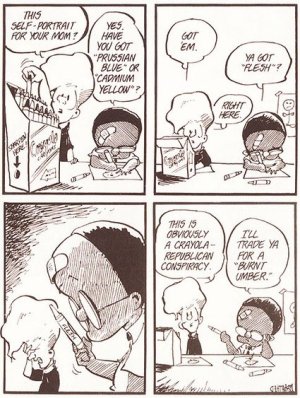Payday lenders depend on people who literally live from paycheck to paycheck. Sure, there are people who have an unplanned expense and need a payday loan to make rent or other recurring bill. What happens with a lot of people who are using payday loans is that the loans are eating up a portion of their paycheck and it becomes a cycle of getting loans paycheck after paycheck.
It's one thing to get a loan because your kid is sick or your car needs to be repaired or because of some unexpected expense. It's another thing altogether to get a loan from one creditor to pay another creditor.
Some of the CFPB's rules around payday lenders talk about things like "loans with interest rates exceeding 36%". That's a big clue about what needs to change: usury shouldn't be legal. In some states, the lenders are charging what would equate to a rate of 600% per year for a 2 week unsecured loan. These loans should be made through a regulated bank with interest rates comparable to credit cards and they should be longer term loans.
The CFPB rules made a lot of progress is simplifying the language in credit contracts; a lot of lower-income people sign debt contracts without really understanding what they're getting into. Organizations like churches would be better served in helping teach financial literacy and financial management instead of enabling payday lenders. It's a win-win. If their congregants were better off financially they would be able to contribute more in the form of tithes.
The factor that needs to change is the hardest: what people are spending their money on. It's astonishing how much debt lower-income Americans are carrying; and the sad fact is that they don't have much, in terms of long-term possessions, to show for it. There's a of pressure to get that latest iPhone, to buy that nice car, to buy the latest fashions, to put it all on credit cards. Interest rates are going to be going up, so there will be rewards for those who save money and significant hardship for those who are carrying short-term debt.
The Republicans and the banks have their sights on the CFPB. The CFPB came about because of the 2008 debt crisis that nearly crashed the US economy. Don't vote for Republicans who don't support Fair Credit Practices and the CFPB.
I’m aware of the mechanics of payday loan exploitation. I’m happy to say when we kicked our conservatives out after 40 years in power that was one of the first changes the new government made in Alberta. It’s a very modest change but it is already helping people who struggle, of any colour.
See here:
https://www.cbc.ca/news/canada/calgary/alberta-payday-lenders-suffering-bill-15-1.4114628
What I notice about your recommendations and our new law in Alberta is it isn’t aimed at a particular ethnicity. I don’t think that weakens it as a useful measure. In Alberta this will help a disproportionate number of poor aboriginal families. But it isn’t there to help them because they’re aboriginal. It’s there to help them because they’re poor. In so doing, it helps all albertans victimised by payday loan predatory lending. It helps them equally, regardless of ethnicity.
We have sort of done ethnic-compensation in the past. But have we on examination? Canada has paid compensation to Japanese Canadians held hostage in concentration camps during the Second World War on account of their ancestry. And we’ve paid compensation to aboriginal Canadians who were more or less kidnapped from their families and taken to church-run, state sponsored indoctrination schools, to “kill the Indian within the child” where they would be beaten for speaking the first languages they ever knew, cree, or ojibwe, too risky, and given the involvement of the church they had a bunch of sexual abuse as well as physically, all hushed up over the decades. Compensation made sense because the survivors were still alive, so were many of the perpetrators. And while the victims were specifically victimised because of their ethnicity, even then the compensation was based on victimisation, not the fact that the recipient was of a particular ethnicity. Japanese Canadians had to have been interned or had property confiscated to receive compensation, it wasn’t granted just on account of having a certain family tree. There was a specific wrong to be righted.
The reason I mention this is because any analysis of inequality is useless in a vacuum. It ought to connect with some policy options that might improve equality and allow people to realize their potential unencumbered by injustice. But then the way you analyse things is critical to the options that follow. To show that black people have, statistically, been more likely to suffer, is pretty damn easy. But if the entire analysis revolves around ethnicity, it leads to stupid policy outcomes.
With a racial analysis of inequality, Alberta could have allowed payday loans to do business on the same terms as usual,missing the link. But to improve racial parity, they could have just paid some special development bonus on the basis of ethnicity. Call it compensation. If so, the problem would not have gone away for cree albertans, it would have just been deferred until the money was spent. And not one damn thing would have ever been done for al the other albertans, including white ones, who were fucked over by payday loan racketeers. Ethnicity isn’t enough.




















 That all we have left to worry about is “privilege?” If so then racism, sexism, homophobia are different from privilege in your view?
That all we have left to worry about is “privilege?” If so then racism, sexism, homophobia are different from privilege in your view? ](*,)](/images/smilies/bang.gif)







